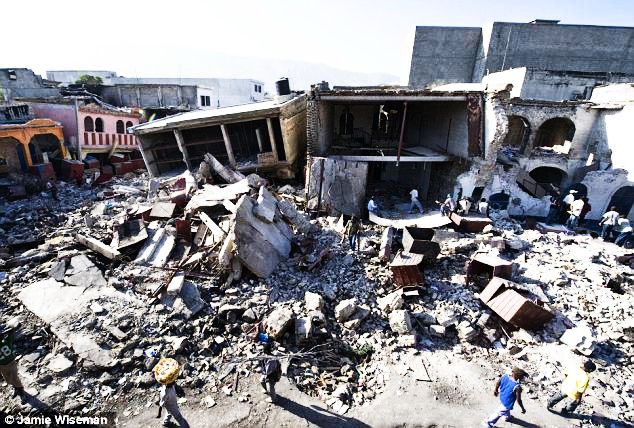
We must prepare towards earthquakes
It occurred in Mexico in 2017, with an estimated 1.5 million people becoming affected and 41,000 homes getting damaged. Buildings closest to the epicentre were totally flattened and 98 people lost their lives.
A similar one had been experienced earlier in Ecuador in 2016 measuring 7.8 on the Richter Scale. In that case too, a commercial shopping district was destroyed. There was widespread damage, with structures located hundreds of kilometres from the epicentre collapsing. More than 676 people were killed and 16,600 injured.
Advertisement
Many others can be cited, but the worst spectacle in recent global history was the occurrence in Haiti in 2010. It measured 7.0 and Haiti’s official figures put the death toll around 300,000, with about three million people being affected, while around 250,000 houses and 30,000 commercial buildings collapsed or were severely damaged.
These are just a few of the after-effects of earthquakes and they paint a picture of how devastating earthquakes can be.
Once again, after a few weeks, the Daily Graphic has to return to the issue of earthquakes because of the signals the country is picking about activities along the country’s fault lines. We do not want to sound alarmist, but we must state that we are deeply concerned.
Ghana is not new to earthquakes. In 1615 and 1935 it experienced its severest earthquakes with a magnitude of over 6.0 on the Richter Scale.
Within one year we have recorded three earth tremors: a 3.4 magnitude on March 24, 2018; a 3.3 on December 9, 2018 and a 2.6 magnitude on January 13, this year.
The Daily Graphic is worried about these happenings because, although foreshocks may not always occur before an earthquake, literature suggests that earthquakes tend to happen in clusters and when earth tremors are consistently happening, there may be a bigger earthquake on the way.
The Geological Survey Department has also warned of an imminent earthquake along the fault lines.
But responses gathered from the authorities concerned with seismic activities and those in charge of disaster response and management indicate that the country is ill prepared for the devastating effects of earthquakes.
We have not forgotten the country’s response to the June 3, 2015 twin fire and water disaster at the Kwame Nkrumah Circle, where even how to cart burnt bodies away the day after the disaster was glaringly a challenge.
Our apprehension also stems from the fact that despite years of earthquake activity in the country, there is no concrete plan for its occurrence.
Perhaps this time nature is prompting us with these tremors, and we commend the President, Nana Addo Dankwa Akufo-Addo, for tasking the National Security and the Ministry of the Interior to prepare an emergency plan to deal with any earthquake that would occur.
As this is a call from the Father of the land himself, our expectation is that the issue has received the highest attention and we urge the ministry and the National Security not to delay any further but see it as an emergency and work around the clock to produce an effective plan in the shortest possible time.
We plead that this should not be handled in the usual way the Ghanaian has done things.
We also call on leadership at all levels — chiefs, the clergy, the media, MPs, musicians and the like — to use their platforms to educate the public on how to reduce fatalities and the effects of earthquakes.
If we do this, each of us would have played a role in reducing casualties should an earthquake occur.



